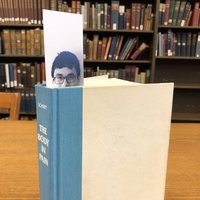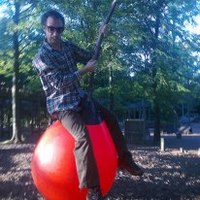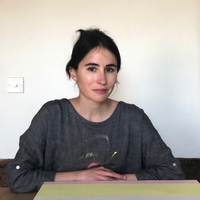
Andrea Brady
Andrea Brady is Professor of Poetry at Queen Mary University of London, where she founded the Centre for Poetry and the Archive of the Now. Her books of poetry include Desiring Machines (Boiler House, 2021), The Strong Room (Crater, 2016), Dompteuse (Book Thug, 2014), Cut from the Rushes (Reality Street, 2013), Mutability: Scripts for Infancy (Seagull, 2012), and Wildfire: A Verse Essay on Obscurity and Illumination (Krupskaya, 2010). The Blue Split Compartments, a suite of poems for the drone age, was published by Wesleyan in 2021. She has published widely on early modern and contemporary poetry and poetics, including the monograph English Funerary Elegy in the Seventeenth Century: Laws in Mourning (Palgrave Macmillan, 2006). In 2018-19 she was a fellow at the National Humanities Center in North Carolina, where she completed a critical monograph on Poetry and Bondage: A New History of the Lyric (Cambridge UP, 2021).
Address: School of English and Drama
Queen Mary University of London
Mile End Road
London E1 4NS
Address: School of English and Drama
Queen Mary University of London
Mile End Road
London E1 4NS
less
Related Authors
Christopher Spaide
University of Southern Mississippi
Jo Lindsay Walton
University of Sussex
Matt ffytche
University of Essex
Paula Currás-Prada
University of A Coruña, Spain
Andrew Michael Gorin
New York University
Felicia Anumah
University of Abuja, Nigeria
Joshua Lam
Michigan State University
Julia K Callander
Appalachian State University
Anna Moser
University of Sussex
InterestsView All (26)








Uploads
Books by Andrea Brady
Papers by Andrea Brady
This essay examines the radical and sometimes Gothic temporalities of Sean Bonney's poetry, in relation to communism, the figure of the crack or fissure, the experience of political defeat, and the wake work performed within the Black radical tradition - not only the music of Coltrane, but also the poetries of Amiri Baraka, Dionne Brand, and M. NourbeSe Philip. It also explores the alignment of Bonney's poetics with Rimbaud, Blanqui, Abiezer Coppe, and a British 'countertradition', as the manifestation of the counterclockwise temporalities of his efforts to care for the dead.
Bonney's poems draw their prosody equally from the ‘music of the law’ drummed by the police on the skull of a prisoner in a cell, and a notion of harmony drawn from the music of Coltrane. Poetry is for Bonney something which backs into the future, taking with it a revolutionary potentiality which could not be realised in the violent repression of the present. But what if – as Bonney writes – poetry does not transform itself dialectically into the voice of the crowd, and ‘all it can do is transform into the endless whacks of police clubs’? What commons can the poetry of the future predict and bring into being in the present, and what damage does poetry do or repair through its formal dialectics of waiting and resolution?